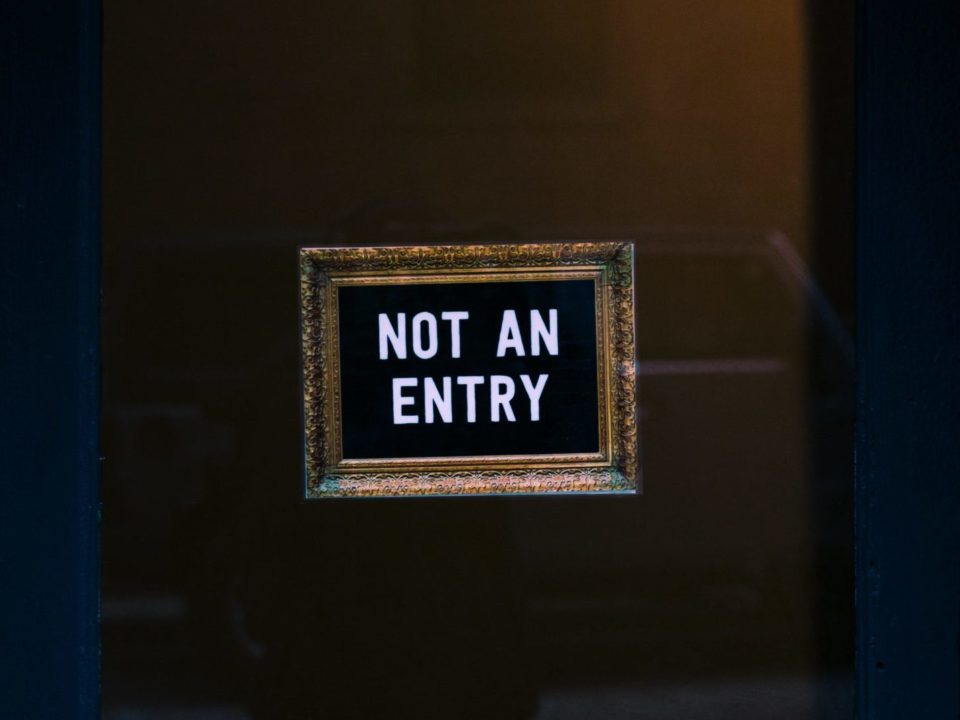Grieving Non-Death Losses
Last year I attended a conference where the topic of a panel was the significance of grief connected to non-death losses. The researchers focused their sites on college campuses and found that many students were ranking break-ups, friendship changes, divorces and stress over poor grades as more painful than deaths they had experienced.
This study was fascinating. Not only were these students connecting grief specifically to a non-death loss,
they were saying that they were more significant than their prior experiences with death.
Grief accompanies many, many experiences and nearly every change we encounter. We may experience grief when we order our favorite meal and are told, “we’re out of that,” – I know it sounds trivial compared to the griefs we deal with at a mortuary – but there is still grief when things don’t go as expected.
We may experience grief …
– when a friend cancels plans at the last minute
– when someone close begins to change and pull away
– when we lose a job
– when we fail at something
– when we sell a beloved car
– when we move out of our childhood home
– when we finish a book
– when we get injured, inhibited, or sick
– when we turn a “certain” age
– when a season ends
– when we lose a community
– when we lose a dream
I remember realizing one morning that there are some days that feel like I’m living in a perpetual state of grief. In any one day most of us can find something that changed. We exist amidst emotional, physical, spiritual, and behavioral dynamics that are complex and in constant change.
Consider this:
1. Not all changes are bad, but the ones that bring up pain need to be recognized.
We may not recognize a grief at first and mislabel it as “just a bad mood”. We may get home after a day of changes and take our anger and regret out on our spouse or child. We may avoid these pains as much as we can, keep busy, never turn the tv off, or get swept up in comparing our lives to others so we can either feel better or worse. When we are distracting ourselves from “feeling” we are failing to recognize something important is going on and it deserves our FULL attention.
2. Give your griefs a voice, your own, unique voice.
Joann, a happy, successful, blogging mother of 2 had a stroke out of no where. 3 years after her stroke she wrote this blog addressing the grief she’s experienced over the life she has lost and the new life she faces.
There is power in her words, power in voicing her grief over a tragedy, a true and sudden life-change, unexpected and unwanted. Power in the admission: I am sad, I am in pain, life didn’t go the way it’s promised.
3. How much time should we spend time acknowledging these griefs?
As much time as you feel they need. Some may only need a few minutes before you can move on and have the pistachio ice cream instead of the cookie dough you wanted. Still others might take significantly longer and as time passes, it’s important to not lose sight of the origin of your grief. The thing about grief is that it’s messy and IT changes, too. Looking at how your grief changes over time helps you gauge where you’re at in the processing, how you’re doing, and how much attention you’re paying to yourself.
4. Don’t confuse “moving on” with “progress” and don’t make “progress” your sole priority.
Live in the change, see the grief, feel it and do what you need to about it. DON’T IGNORE IT.
Giving these changes in your life permission to be painful is important in helping you realize the significance of the change. We live in a society obsessed with “moving on” – not a bad notion, but potentially harmful, disrespectful, and full of emptiness if we don’t take time to pause before the void of what used to be.
“We delight in the beauty of the butterfly, but rarely admit the changes it has gone through to achieve that beauty.”
— Maya Angelou





8 Comments
Hi Molly –
Another amazing blog from you! This very topic should be taught in school at a young age. We all experience loss or failure. Bad grades, a break up in a relationship, losing a sports game, moving schools. I agree change can be healthy, we just need to be able to talk about it and learn from it.
Hey Molly,
Great topic. I can relate to experiencing non death related grief when I have injured my self. I have grieved over the loss of mobility and being able to exercise. Whether it was the herniated disk or achilles surgery, those event had a significant impact on my psyche. Thanks for sharing, Fitz
Molly,
Everyone hears the word grief and the automatic arrow in our minds points to death, be it of a human or a pet. This further stretch of using the word with other losses is no less meaningful when I ponder it.
I have grieved other changes, other losses. I have also ignored the feelings at other times, determining to “buck up” and deal with it. It is important to realize we must give ourselves permission to:
pause,
examine it
realize how things will change,
accept the parts we can,
and THEN move on.
Thanks for pointing out healthy ways to do this,
Anne